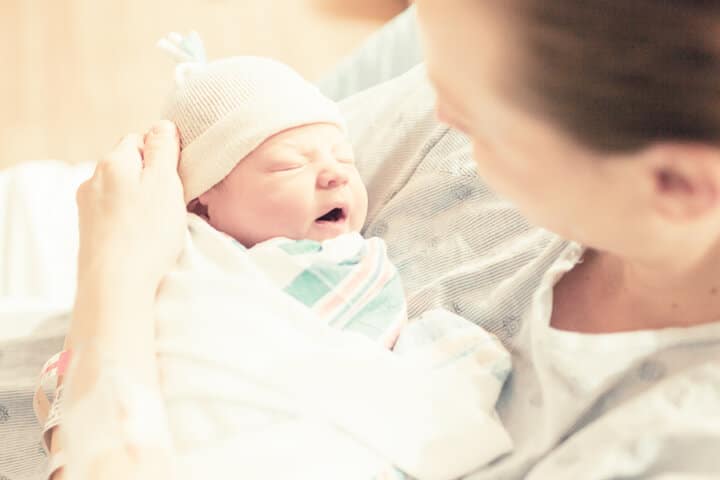Birth changes us. It is powerful and profound.

Birth leaves us transformed in the wake of it’s creation. This moment in time was longed for, dreamed of and planned out.
Your birth experience should be special. A celebration of new life. Birth should be a special rite of passage in a woman’s life.
But, what if it’s not? What if birth isn’t what you hoped for?
Instead of feeling supported, safe and loved, you were left feeling angry, heartbroken, like a failure or even traumatized?
How do you move on after a painful and traumatic birth experience?
How do you let go of the negative memories?
Often women who have had a negative birth experiences are told: “At least your baby is healthy, that’s all that matters” in an attempt to help them “get over it”
While, yes, obviously a healthy baby is such an important thing to be grateful for, but it does not mean the way you feel about your birth isn’t valid.
You can be grateful for the health and safety of your baby and grieve the loss of the birth you hoped for at the same time.
Your birth matters but your birth does not define your worth.
What is Birth Trauma?
Defining what makes a birth traumatic is difficult because it is based on personal perception.
Some moms experience feelings of trauma from a typical delivery with no physical scars to speak of however, they feel no one listened to them during labor or respected their wishes for their experience.
Yet, another mom’s difficult birth came from her emergency c-section when she worked so hard during her 20+ hour induction to have a vaginal birth.
One woman may feel traumatized after delivering her child and due to complications, watched them whisked away to the NICU without ever holding them or touching them.
Now, that mom is having a difficult time bonding with her baby postpartum due to the separation.
Examples of things that may contribute to traumatic birth are:
- Emergency c-section
- Pain not being managed well
- Feeling the loss of control
- Multiple medical interventions
- Lack of respect and dignity
- Fear for unborn baby’s well being
- The attitudes of staff caring for mother
- Not feeling listened to
- Forceps or vacuum delivery
- Lack of information and explanation
Why We Don’t Talk About Birth Trauma
Many women feel like if their birth isn’t traumatic enough, it doesn’t count. Women feel shame at having negative emotions about their birth at all.
As if something is wrong with them for feeling the way they do.
All of often, women who experience a difficult birth feel:
- Like a failure
- Guilt
- Shame
- Regret
- Anxiety
- Angry
- Let down
- Broken
Women often feel alone and unable to talk about the feelings they associate with their births. People close to them may dismiss their issue or ignore them entirely.
Women may feel fear about being judged for how they feel. This just makes the mother feel more alone and isolated in her experience.
People don’t want to hear the messy, uncomfortable, hard to swallow truths that often birth are about. Often times loved ones may not know what to say or how to help.
Healing Your Heart – The Road to Recovery

If you have experienced a difficult birth, you cannot change what happened. However, there are steps you can take to begin processing your experience and heal from it.
The process to coming to terms with a negative birth experience is a journey. It is not going to happen overnight, but it can be accomplished.
When you are ready to heal your heart and process your emotions here are some steps you can take.
I am not a licensed counsellor or physician. I am not giving medical advice. Information on this website is not intended to diagnose, or treat any form of any disease. This article is for informational purposes only.
I am only telling you what my experiences are. If you have thoughts of harming yourself or your baby please reach out immediately for professional help.
1. Talk with Other Women
I believe that pain shared is pain divided. You do not have to carry the burden of the emotional trauma you experienced by yourself.
You would be amazed by how being vulnerable with other women about your birth experiences how many of them can relate to you.
Many times we tell ourselves we are just “being over dramatic,” or “I have a healthy baby, what do I have to complain about?” or “I’m the only one who feels like this”.
This internal talk will lead us to feelings of loneliness and isolation which leads to further depression and shame (there must be something wrong with me).
*Disclaimer* Try to find other women to talk to that have experienced something similar. A lot of times well meaning friends and family do not know how to support you through something they have never been through and may not be as helpful as they hope to be.
2. Get the Facts
Talk with your doctor. Get your hospital records. Go over exactly what happened during your birth.
Getting the facts straight may help you put things in perspective and answer any lingering questions you have about your experience.
By doing this you can see exactly what could have been done differently. You could have easily avoided some of the circumstances that made your birth difficult OR nothing could have changed the outcome and it was out of anyone’s control.
It’s important to know what you can change and what you can’t.
3. T.I.M.E
Like I said before the road to healing is a journey. Healing takes time. It will take time for your body to physically heal.
Likewise, it will take time for your heart and mind to heal from the scars that are not visible from childbirth.
No matter how much you want to, you cannot rush the process. There is no fast pass through the messy emotions that are left over after trauma.
You cannot go around it, over it or under it. You must go straight through.
4. Give Yourself Permission
So many times as mothers we put others needs before our own. Motherhood is sacrificial. Motherhood is not martyrdom.
As mothers we tend to put our feelings and needs to the side. In this case, it’s all too easy to do.
It is much easier to focus on the needs of others when it may be hard to face the reality that is in front of us.
You may not be giving yourself permission to feel and process the emotions you are going though. Have you labelled your emotions “bad” or “selfish”?
You may have told yourself to “Quit being so weak.” or “It’s time to get over this, you have a baby to think of now.”
If that is you, give yourself permission to feel the emotions that need to be processed. The longer you push them away, the longer it will take to heal.
5. Help Others
One of the most healing things you can do when recovering from a traumatic experience is, when you can, to help those who are struggling with the same thing.
Like the survivors of a shipwreck, you share an experience that not many can understand. That shared experience creates a bond unlike any other. One that is not easily broken or rivalled.
No one is as qualified as you are to help another woman suffering from the pain of having a traumatic birth.
By extending a hand to another woman that is suffering, you can both rise above the brokenness and find purpose and healing in the process.
6. Know Where to Find Help
Sometimes you can’t heal from a bad birth experience by yourself or with the help of friends and family. You need to know when to ask for help.
Birth trauma is a spectrum and can range from being disappointed in the your birth experience to postpartum PTSD.
Symptoms of postpartum post traumatic stress disorder (PTSD) include:
-
- Intrusive re-experiencing of a past traumatic event. (which in this case may have been the childbirth itself)
- Flashbacks or nightmares.
- Avoidance of stimuli associated with the event, including thoughts, feelings, people, places and details of the event.
- Persistent increased arousal (irritability, difficulty sleeping, hyper-vigilance, exaggerated startle response)
- Anxiety and panic attacks.
- Feeling a sense of unreality and detachment.
If you are experiencing any of these symptoms please reach out to a perinatal psychologist. It’s so important to talk with someone who specializes in postpartum mental health.
Not every mental health professional has the training to support mothers through these unique challenges.
I hope this post helps you find the road to recovery and healing. Remember your birth matters.
Your birth is not your worth.



